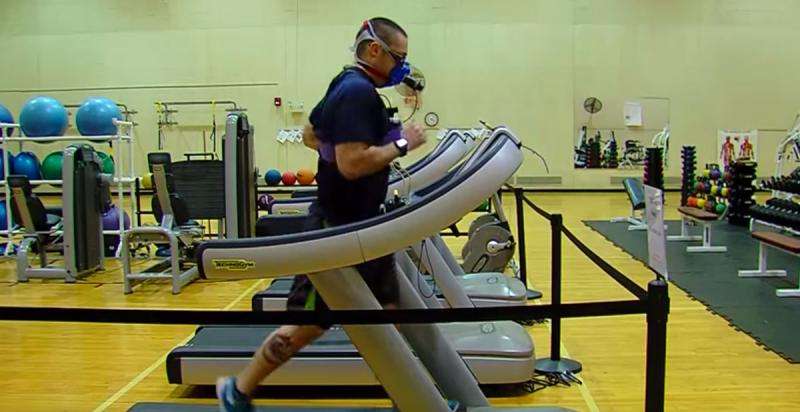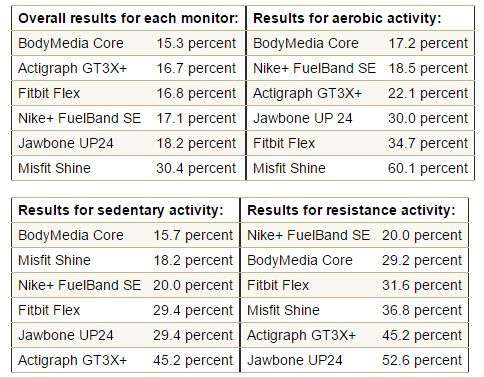Activity trackers not as accurate for some activities, study finds

Activity trackers can provide a good overall estimate of calories burned, but an Iowa State University study finds they're less accurate when measuring certain activities, such as strength training.
In this latest round of testing, a team of researchers in ISU's Department of Kinesiology tested four consumer fitness trackers - Fitbit Flex, Nike+ FuelBand SE, Jawbone UP 24 and Misfit Shine - to see how well they measured sedentary, aerobic and resistance activity. Two research monitors - the BodyMedia Core and Actigraph GT3X+ - were also included in the study.
Overall, the BodyMedia Core was the top performer with a rate of error of 15.3 percent. The Misfit Shine was the least accurate with a 30.4 percent error rate. The results are published in Medicine & Science in Sports & Exercise. The following is a breakdown of error rates for each monitor based on activity:

A test of real conditions
ISU researchers designed the study to mimic real daily living activities. The 56 participants were asked to complete 20 minutes of sedentary activity, such as reading a book, working at the computer or watching a video. That was followed by 25 minutes of their choice of aerobic activity and 25 minutes of resistance exercise, with 5 minutes of rest between each activity.
"By looking at the most commonly performed activities in exercise and daily living settings, we can examine where the errors occur," said Yang Bai, lead author and a graduate research assistant in kinesiology. "As expected, some monitors overestimate or underestimate all three activities, but some monitors overestimate one type and underestimate the other two categories, which can cancel out if we don't measure them separately."
As with the previous activity monitor study, researchers say accuracy is important, but it is only part of the equation in terms of improving physical activity levels.
"I think the key to a consumer is not so much if the activity monitor is accurate in terms of calories, but whether it's motivational for them and keeps them accountable for activity in a day," said Greg Welk, professor of kinesiology.
Yoon Ho Nam, Joey Lee, Jung-Min Lee, Youngwon Kim, Nathan Meier and Philip Dixon were part of the research team that contributed to the study.
Journal information: Medicine & Science in Sports & Exercise
Provided by Iowa State University



















